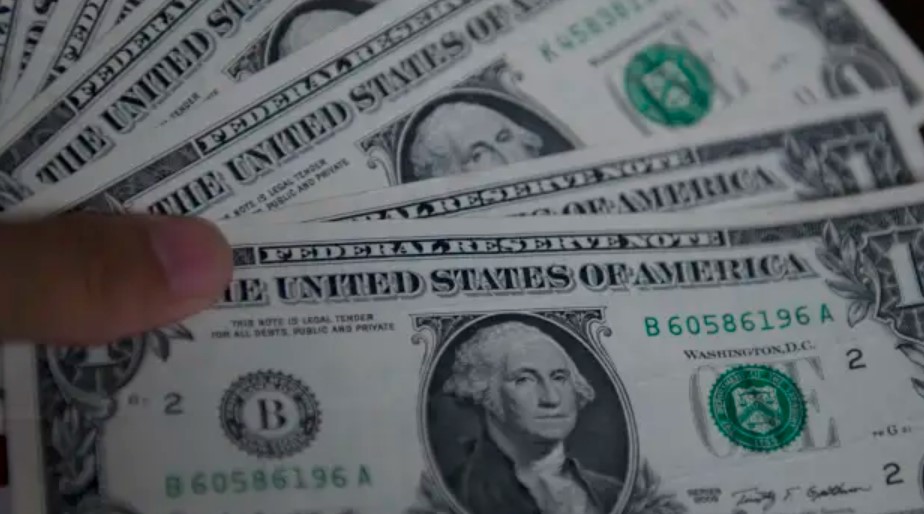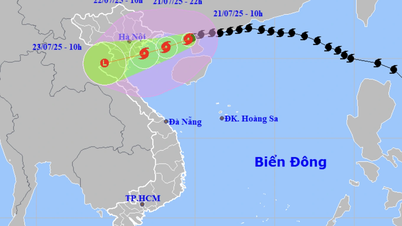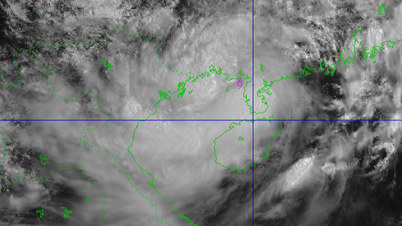Interest rates hit rock bottom
Since September 14, two "pieces" of the Big4, the Joint Stock Commercial Bank for Foreign Trade of Vietnam (Vietcombank) and the Bank for Agriculture and Rural Development of Vietnam ( Agribank ), have simultaneously adjusted their deposit interest rates to a significant decrease and to the lowest "bottom" since before Covid-19.
Accordingly, Vietcombank 's highest interest rate is now only 5.5%/year, down 0.3%/year. The applicable term is from 12 months and up. The interest rate for 6-month and 9-month terms decreased by 0.2%/year to 4.5%/year. The interest rate for 3-month terms decreased by 0.3 percentage points to 3.5%/year. The interest rate for 1-month terms remains at 3%/year.
At Agribank, the highest rate is only 5.5%/year applied to terms over 12 months. For terms from 6 months to under 12 months, the general rate is 4.5%/year. The interest rate of 3%/year applies to terms of 1 month and 2 months.

While interest rates hit a new "bottom", the USD/VND exchange rate skyrocketed and exceeded 24,500 VND/USD - the highest mark in 2023. Illustrative photo
Meanwhile, by the end of September 15, Vietnam Joint Stock Commercial Bank for Investment and Development ( BIDV ) and Vietnam Joint Stock Commercial Bank for Industry and Trade (VietinBank) had not yet adjusted their listed rates. The highest rate was still 5.8%/year (applied to terms of 12 months or more).
Right now, this may not be the “bottom.”
At the recent workshop “Risk Management in International Trade” organized by UOB Group, Mr. Dang Tuan Duy - UOB Global Markets Division predicted that interest rates may continue to decrease in the near future.
According to Mr. Tuan Duy, UOB forecasts that the exchange rate will continue to be under pressure and the USD price will reach 24,500 VND in the third quarter of 2023 before cooling down in the fourth quarter of 2023. At the same time, UOB believes that the operating interest rate, specifically the refinancing interest rate, may be reduced from 4.5% to 3.5% in Vietnam, a further decrease of 100 points equivalent to 1%.
“However, the fact that the Chinese central bank continues to lower its operating interest rate, leading to a possible further depreciation of the yuan, putting pressure on the VND, is still an issue that needs special attention,” Mr. Tuan Duy emphasized.
Exchange rate hits "peak"
While interest rates hit rock bottom, the USD/VND exchange rate hit a peak and surpassed the 24,500 VND/USD mark.
Orient Commercial Joint Stock Bank (OCB) is the unit that listed the highest selling price of USD at 24,554 VND/USD, up 27 VND/USD compared to the end of yesterday and up 180 VND/USD, equivalent to 0.75% compared to the end of August. The buying price at OCB also exceeded 24,000 VND/USD when reaching 24,089 VND/USD.
At VietinBank, the exchange rate was traded at 24,097 VND/USD - 24,437 VND/USD, up 77 VND/USD for buying, down 3 VND/USD for buying compared to the end of yesterday but up 147 VND/USD, equivalent to 0.6% after half a month of trading.
Meanwhile, the dollar gained in Asia on Friday, maintaining overnight gains against other currencies following strong US economic data and a European Central Bank (ECB) rate hike, while traders' attention cautiously turned to data from China.
US retail sales got a boost from higher gasoline prices, rising 0.6% in August compared to an estimated 0.2% gain, while market participants reacted to the ECB's 25 basis point hike.
The US dollar index stood at 105.380, near Thursday's six-month high of 105.430.
The euro remained near a multi-month low of $1.0632 against the dollar on Thursday.
“It appears that markets interpreted yesterday’s 25bp ECB rate hike as a dovish one… which sent EUR and European interest rates lower,” analysts at Mizuho Bank said.
Market focus now shifts to economic data from China in the Asian morning, including retail sales and investment growth, which have traders worried about signs of a slowdown in the world's second-largest economy.
“Today’s data will be extremely important,” said Rodrigo Catril, senior foreign exchange strategist at National Australia Bank.
The offshore yuan continued to fall against the dollar to 7.2918.
The yuan weakened on Thursday after the People's Bank of China (PBOC,) announced that it would cut banks' reserve requirement ratio by 25 basis points.
Catril said that while the PBOC has provided “piecemeal” stimulus, it still lacks the support to boost consumer confidence.
Source


























![[Photo] National Assembly Chairman Tran Thanh Man visits Vietnamese Heroic Mother Ta Thi Tran](https://vphoto.vietnam.vn/thumb/1200x675/vietnam/resource/IMAGE/2025/7/20/765c0bd057dd44ad83ab89fe0255b783)











































































Comment (0)